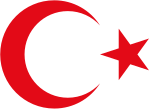Latvia–Turkey relations
This article needs additional citations for verification. (October 2020) |
 | |
Latvia |
Turkey |
|---|---|
| Diplomatic mission | |
| Envoy | |
| Ambassador Pēteris Vaivars | Ambassador Gülsun Erkul[1] |
Latvia–Turkey relations are the foreign relations between Latvia and Turkey. Bilateral relations between Turkey and Latvia are excellent.[according to whom?] Latvia’s NATO allowed both countries to cooperate.
Historical Relations[]
- Turkey recognized the independence of Latvia in 1925 and diplomatic relations were established on August 28, 1925.[citation needed]
- Following the USSR annexation of Latvia in August 1940, Turkey closed its consulate in Riga– in tandem with the United States– on September 5, 1940. Despite the closure of the consulate, Turkey never recognized the Latvia’s annexation and continued diplomatic relations with Latvia and Estonia by conferring diplomatic status on the diplomats that were accredited by the previous Latvian government.[citation needed]
- Turkey recognized the restoration of Latvia’s independence on September 3, 1991.[citation needed]
Diplomatic Relations[]
Both countries are members of the Council of Europe United Nations, North Atlantic Treaty Organization, Organisation for Economic Co-operation and Development, Organization for Security and Cooperation in Europe, International Monetary Fund, World Bank and the World Trade Organization.[relevant?]
Country comparison[]
| Flag | 
|

|
| State Emblem / National Emblem | 
|

|
| Population | 1,907,675 | 83,154,997 |
| Area | 64,589 km2 (24,938 sq mi) | 783,356 km2 (302,455 sq mi) |
| Population density | 29.6/km2 (76.7/sq mi) | 105/km2 (271.9/sq mi) |
| Capital | Riga | Ankara |
| Government | Unitary parliamentary constitutional republic | Unitary presidential constitutional republic |
| Current Leader | President Egils Levits Prime Minister Arturs Krišjānis Kariņš |
President Recep Tayyip Erdoğan Vice President Fuat Oktay |
| Official languages | Latvian | Turkish |
| Main religions | 80.0% Christianity, 18.3% No religion | 97.6% Islam, 1.1% Christianity, 0.3% Judaism |
| Ethnic groups | 62.3% Latvians, 24.9% Russians, 3.2% Belarusians | 85% Turkish, 9% Kurdish 6% Others |
| Human Development Index (HDI) | 0.854 (very high)[2] — 39th | 0.806 (very high)[3] — 59th |
| GDP (PPP) | $63.490 billion ($32,986 per capita) | $2.464 trillion[4] ($29,326 per capita) |
Presidential Visits[]
| Guest | Host | Place of visit | Date of visit |
|---|---|---|---|
| Çankaya Köşkü, Ankara | April 16-17, 2014[5] | ||
| Riga Castle, Riga | October 22-23, 2014[6] | ||
| Riga Castle, Riga | May 16, 2019[7] |
Economic Relations[]
- Trade volume between the two countries was 398 million USD in 2016 (Turkish exports/imports: 196/202 million USD).[8]
See also[]
- Foreign relations of Latvia
- Foreign relations of Turkey
- EU–Turkey relations
References[]
- ^ "Republic of Turkey Embassy in Riga". Ministry of Foreign Affairs of Turkey.
- ^ "2019 Human Development Index Ranking | Human Development Reports". hdr.undp.org. Retrieved 2020-08-04.
- ^ "2019 Human Development Index Ranking | Human Development Reports". hdr.undp.org. Retrieved 2020-08-04.
- ^ "International Monetary Fund, Report on selected countries". International Monetary Fund.
- ^ "Foreign Minister Edgars Rinkēvičs: Latvia supports an open political dialogue with Turkey". Ministry of Foreign Affairs of Latvia.
- ^ "Foreign Minister Edgars Rinkēvičs: Latvia supports an open political dialogue with Turkey". Ministry of Foreign Affairs of Latvia.
- ^ "Foreign Minister Edgars Rinkēvičs: Latvia supports an open political dialogue with Turkey". Ministry of Foreign Affairs of Latvia.
- ^ "Foreign Minister Edgars Rinkēvičs: Latvia supports an open political dialogue with Turkey". Ministry of Foreign Affairs of Latvia.
Categories:
- Latvia–Turkey relations
- Bilateral relations of Latvia
- Bilateral relations of Turkey
